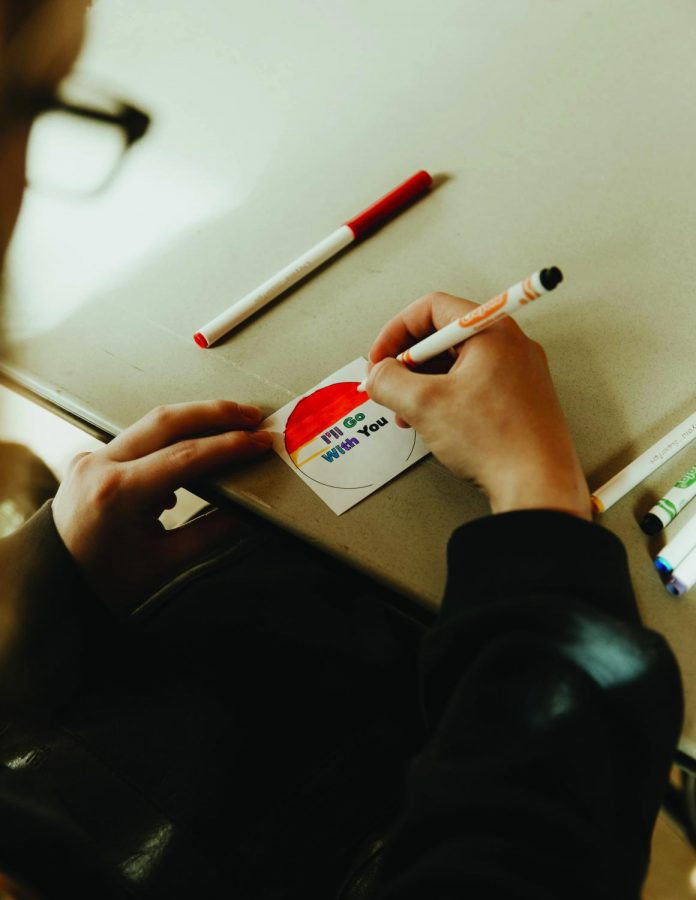OSU celebrates Queer History Month
October 7, 2019
First celebrated in 1994, Queer History Month coincides with “National Coming Out Day”—a celebration of coming out as lesbian, gay, bisexual, transgender, queer or as an ally—held annually on Oct. 11th.
Qwo-Li Driskill, an associate professor in Women Gender and Sexuality Studies and Queer Studies, said Queer History Month celebrates and acknowledges the history of LGBTQ+ people.
Driskill stated the contemporary LGBTQ+ movement is commonly agreed to have begun with the 1969 Stonewall Riots at the Stonewall Inn in New York City. This year marks the 50th year since the event.
“The Stonewall riots happened because of a history of brutalization of LGBTQ+ people. It was illegal at the time for LGBTQ+ people to congregate in public,” Driskill said.
Police would regularly raid LGBTQ+ bars and often brutalize, arrest and send people to mental institutions, according to Driskill.
Driskill said there were previous LGBTQ+ movements taking place, but Stonewall was a turning point because of the impact it had on the unification of people.
“Part of what was significant about Stonewall was really the organizing afterwards, it mobilized people first in New York City, and then nationally and internationally,” Driskill said.
From Stonewall came forth a wave of activist organizations—including the Gay Liberation Front—which started chapters across the United States. Activists worked to change laws that criminalized LGBTQ+ people and to place protection laws, according to Driskill.
However, 50 years after Stonewall, LGBTQ+ people continue to face many problems.
Driskill stated that particular problems include the high rates of violence against trans women—trans black women in particular—along with the implementation of bathroom bills and attacks on LGBTQ+ youths through conversion therapy.
“In a lot of ways, we have not yet fulfilled the vision of Stonewall, which was much more about recreating society so that homophobia, transphobia, sexism and the systems that force people into heterosexuality or gender expression and identity don’t exist anymore,” Driskill said. “That vision [of Stonewall]—we are not there yet.”
Oregon State University is holding many events this October to celebrate Queer History Month.
Glitter in the Archives will be hosted by the OSU Queer Archives. The event will take place on Thursday, Oct. 24 from 4-6 p.m. in the Valley Library’s 5th floor Archives and Special Collections Reading Room, room 5069. The event is free and open to the public.
Natalia Fernàndez, the curator of the Oregon Multicultural Archives and OSU Queer Archives, said that Glitter in the Archives is a fun opportunity for participants to learn about queer history in the OSU and Corvallis area while imagining, creating and crafting queer and trans futures together.
“As an archive, OSQA collects materials pertaining to the past, but in addition, our goal is to invite community members to the archives to experience the collections and bring the material to life,” Fernàndez said via email. “Using copies of archival materials and popular images connected with contemporary queer experiences, participants can create collages that blur the boundaries between the past, present and future.”
The Pride Center will be holding a variety of events this month to celebrate Queer History Month. One such event, the “I’ll Go With You” campaign, relaunched on Oct. 2 for the first time since May 2016.
Assistant Director of the Pride Center Cindy Konrad said the purpose of the event was to hold conversations about what it means to provide active support to transgender and non-binary people.
“The students who brought the campaign to campus were non-binary people who wanted to create a network of visible and active support for others on campus and build a stronger community,” Konrad said in an email.
Upon its first launch, “I’ll Go With You” made national headlines. Konrad reasoned that the event gained such popularity due to at-the-time legislation passed in North Carolina that restricted transgender and non-binary people to using only bathrooms that aligned with the sex designation on their birth certificate.
“The law was just overturned this summer, but that legislation and others like it were very much in the public consciousness at the time,” Konrad said.
For more information on Queer History Month and a full list of events, visit the Pride Center Facebook page.











































































































